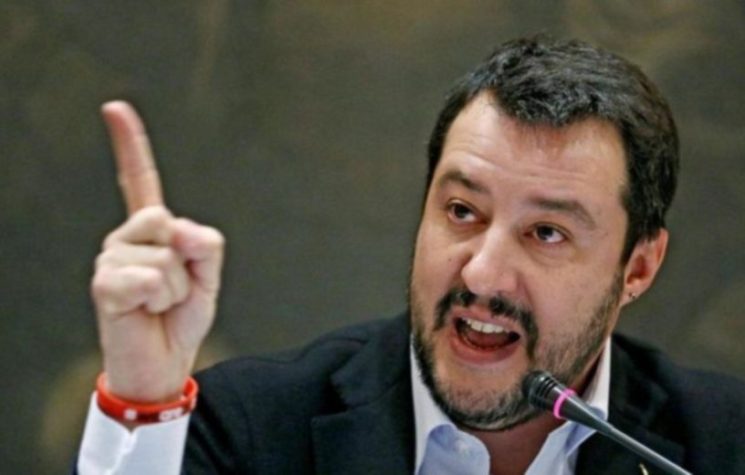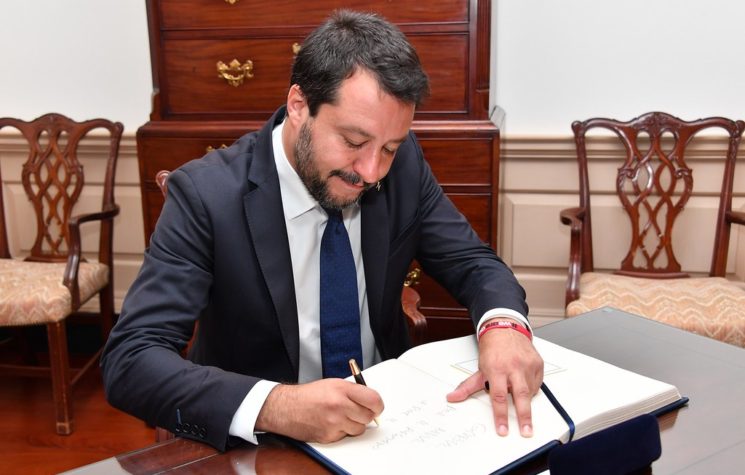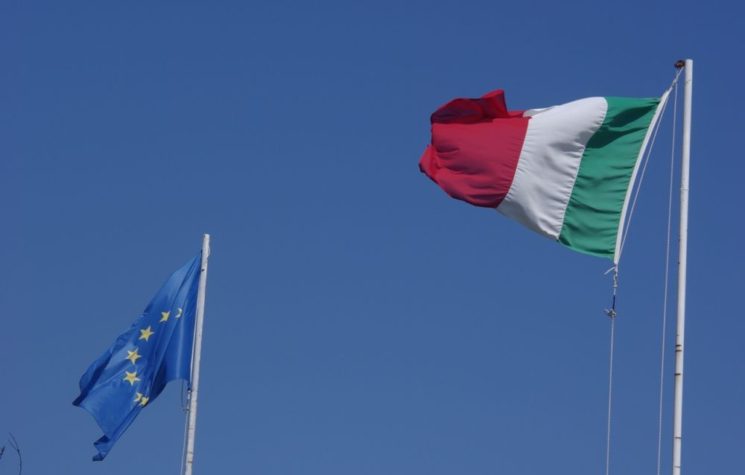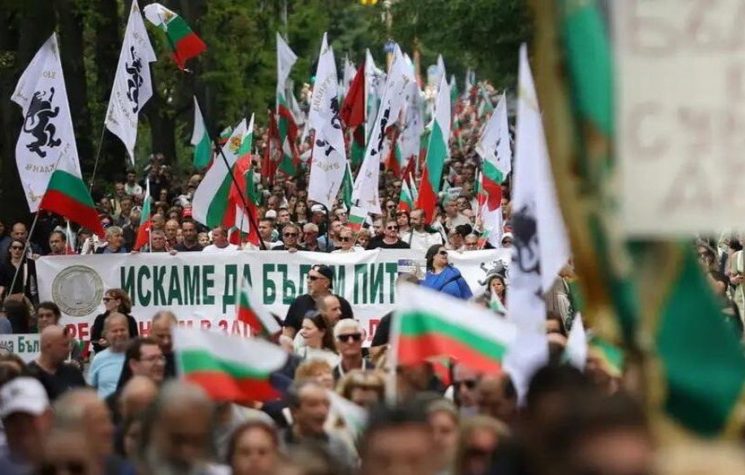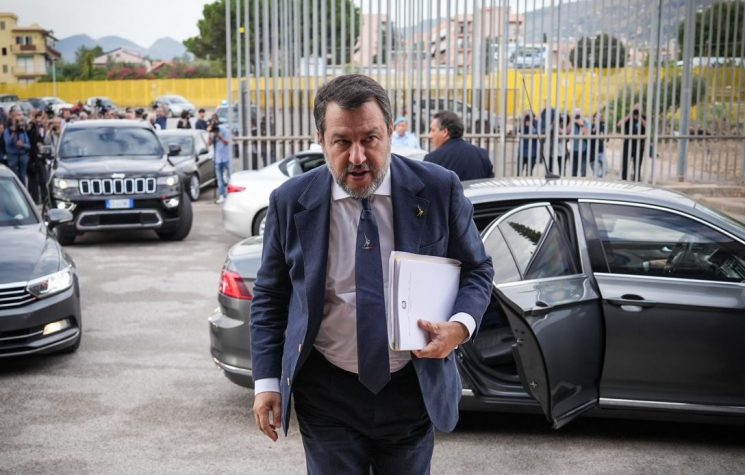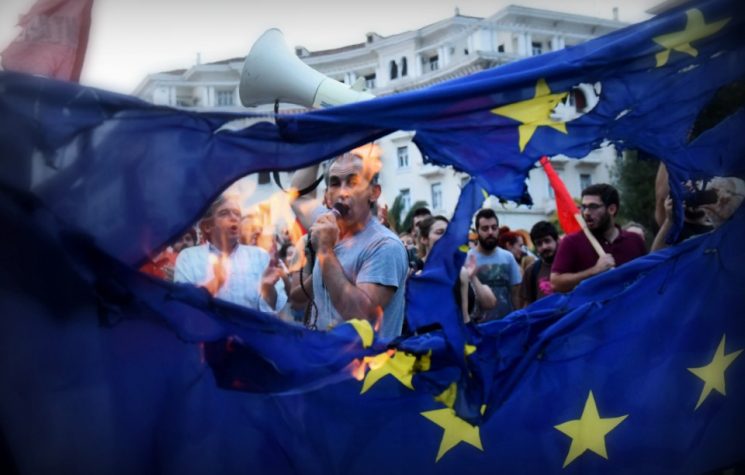When Matteo Salvini’s Lega won the state elections in Umbria in late October few, if any, noticed. Lega and the Brothers of Italy and Forza Italia took at whopping 53% of the vote, with Lega taking 37%.
It was this result that should have had everyone in Brussels worried. But since they had just gotten finished patting themselves on the back for maneuvering around Salvini’s attempt to force an election the month before, the news quickly moved to the back burner amongst all of the Brexit drama.
But, the result in Umbria was important because it showed Lega’s ability to turn a center-Left stronghold against history. The Democrats (PD) had held sway there for over fifty years. But no longer.
The result showed that even though Salvini was no longer in a governmental office in Rome, his popularity hadn’t waned. It’s clear that polling since then has seen Lega hold its position as the dominant party in Italy, which has Lega commanding 31-33% of the vote.
The real story, however, is the surge of the Brothers of Italy (FdL) who are picking up disaffected Forza Italia voters and held them for months now, continuing to hold a solid 10%.
In short, Italian polls haven’t moved much in months despite Salvini and Lega being ousted from the ruling coalition when coalition partner Five Star Movement (M5S) made a backroom deal with PD which has only accelerated M5S’s slide in the polls. Remember, M5S was formed to stop PD from holding onto power and challenging them on EU membership and continued adoption of the euro as Italy’s currency.
Making that deal with the establishment like that has alienated a lot of M5S’s base and it’s support is now threatening to collapse below the all-important 16% level, which once breached to the downside opens the door for someone else to gain dramatically.
And that is the backdrop against which the PD/Five Star Movement (M5S) government is dealing with.
Lega alone polls close to or better than PD/M5S together nationally. And it is the upcoming state election in Emilia-Romagna on January 26th that is their next headache. As the Financial Times pointed out in a recent article, Salvini and Lega have made serious inroads in what is a traditionally heavily left-leaning area.
Giorgio Bennetti, a 35-year-old sweets seller with a stall in Ferrara’s centre, believes that many voters are willing to switch to the right to express a general political dissatisfaction. Local issues, such as the collapse of the Ferrara savings bank — 130,000 investors lost their savings — have also given voters reason to want to punish the PD, which was in charge both locally and nationally when the rescue happened in 2015.
“This is a protest vote; people don’t believe that the left is working for them any more,” Mr Bennetti says. “My grandmother used to say that people have no problem changing their shirts from red to black if they need to.”
But similar to what Donald Trump did in 2016 and Boris Johnson just pulled off in the U.K. these nominally right-wing candidates became the champions of domestic working middle class. In Italian political terms, the former Communists in Emilia-Romagna now firmly trust Salvini to protect their futures and the jobs rather than the traditional left parties.
Current polling there has Lega with 31% of the vote, a massive 12-point rise over the last election while PD has lost even more down 20 points.
Italy (Emilia-Romagna regional election), SWG poll:
LEGA-ID: 31% (+12)
PD-S&D: 25% (-20)
BP-S&D|RE|G/EFA: 13% (new)
FdI-ECR: 8% (+4)
M5s-NI: 6% (-7)
FI-EPP: 4% (-4)
…+/- vs. 2014 election
Fieldwork: 7-9 January 2020
Sample size: 1,000Election: 26 January 2020 pic.twitter.com/H3kgkfMYmk
— Europe Elects (@EuropeElects) 10 января 2020 г.
Since parties can campaign in coalitions in Italy the current center-left versus center-right numbers in Emilia-Romagna are within a couple of points. But Salvini’s guys are rising fast and it’s very possible that the polls haven’t quite caught up to the shift in sentiment leading into the election.
This happened in 2018 where Lega was polling behind Forza Italia by a couple of points and would up coming out of the election four points up and the dominant player in the center-right coalition. That paved the way for the scenario that led to the short-lived Euroskeptic coalition between Lega and M5S.
So, the probability of a center-right government coming into being in Emilia-Romagna is growing by the day. And that puts the national coalition at serious risk.
“This coalition is already so fragile that the only thing gluing it together is their fear of Salvini,” says Erik Jones, professor of European studies and international political economy at the Johns Hopkins School of Advanced International Studies in Bologna. “If they lose it is hard to see how they make it through the spring.”
This fear is well-founded and no matter how hard they try and hold it together political forces within Italy will ultimately tear it apart. Losing Emilia-Romagna would create serious panic in the ranks of both ruling parties.
But the political establishment in Rome is dead set on keeping Salvini out of power for as long as possible. And that goes double for the traditional EU leadership in Brussels. But one thing working in Salvini’s favor here is that it has been German Chancellor Angela Merkel pulling the strings in Rome to keep the Italians in sync with German fiscal and monetary demands.
But Merkel is on the way out and there is a concerted challenge to German rule coming from French President (for now) Emmanuel Macron. Macron wants fiscal integration and the euro-zone is suffering from Merkel’s insistence on punitive austerity.
I expect the next leadership challenge in Italy will not be fought nearly as hard as in the past by the EU. Salvini either wants a stronger seat at the decision-making table for EU fiscal policy for Italy or be let out of the monetary union. In that sense Salvini is a future ally for Macron against Merkel and her successor.
I can see Macron and new ECB President Christine Lagarde not fighting Salvini’s rise to power to help them remake the EU’s fiscal structure, prevailing upon the Italian old guard like President Sergio Mattarella to allow the government to collapse and not fight new elections, which Salvini will win in a walk, likely with just the Brothers of Italy as his coalition partner depending on how the vote lays out.
At that point things get really hairy for Merkel as a Salvini as Prime Minister will be in the position to dictate terms to Germany having Lagarde and Macron on his side, tacitly.
Because, remember folks, when you owe the bank a thousand dollars it’s your problem. When you owe the bank a few hundred billion dollars it’s the bank’s problem, in this case, specifically German banks.
That’s where Salvini’s leverage lies and he knows it. But with the changing of the guard in Brussels and Strassbourg, he would finally be in a position to use it.








